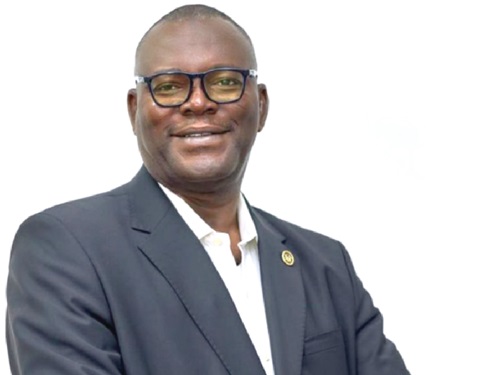An Accountant, legal practitioner and tax expert, Professor Abdallah Ali-Nakyea, has identified seven areas that provide incentives for corruption, and called for a concerted national effort to deal with the menace.
The incentives include regulations that set price, import and export restrictions, labour laws, etc.; authorisation and permits regimes; taxation (income tax, value added tax, property taxes, etc.) and funds transfers and subsidies (agricultural and industrial subsidies, personal income).
The rest are kickbacks on government purchases, especially capital projects and infrastructure; financial repression (credit controls and rationing, banking monopolies, etc.) and privatisation of government assets, such as the selling of nationalised industries.
In a keynote address in Accra last Thursday at a multistakeholder forum on “Hidden riches, hollow laws: dissecting the loopholes that fuel corruption in Ghana” Prof. Ali-Nakyea cited various studies, authorities, his personal studies and media reports to support his presentation, which rallied all quarters of the nation to take a critical look at corruption and do their best to fight it.
“Combating corruption requires the concerted efforts of various key players,” he said, and specifically cited the government, law enforcement agencies, the Judiciary, Civil society organisations, the private sector and the banking sector to tighten the screws to stem the tide of corruption.
The forum was sponsored by Thompson Reuters Foundation, Norad — the Norwegian Agency for Development Cooperation, and Oxfam, an international non-profit organisation that fights inequality.
Laws
Prof. Ali-Nakyea pointed out that loopholes in the country's anti-corruption laws had been exploited in various ways.
Explaining further, he said certain laws might not rope in all types of corruption, allowing for corrupt activities to take place without the perpetrators facing legal repercussions.
For instance, he said, existing laws might not sufficiently tackle conflicts of interest, as the country’s current definition of corruption and its scope did not meet the standards set by the United Nations Convention against Corruption (UNCAC) and the African Union (AU) Convention.
Prof. Ali-Nakyea said it was, therefore, crucial to amend the Criminal Offences Act, 1960 (Act 29) to broaden its scope to include illicit enrichment, conflict of interest, bribery in the private sector and embezzlement within the private sector.
He added that violations of the Code of Conduct for Public Officials, which encompassed Asset Disclosure and Conflict of Interest, had several shortcomings, such as the lack of verification and no public disclosure, with a restricted coverage.
“The guidelines regarding conflict of interest are still considered soft law and are mostly not enforceable. Inadequate enforcement of asset declaration regulations enables public officials to conceal illegally obtained wealth, complicating efforts to track and reclaim stolen assets,” Prof. Ali-Nakyea said.
Again, he added that the objectives of some anti-corruption laws often failed to achieve their intended outcomes.
For instance, he said sole-sourcing and restricted tendering were originally meant for emergencies or unique circumstances but they had instead become avenues for favouritism and higher costs, adding that “additionally, the law does not require the procurement entity to provide evidence that no other suppliers could fulfil the request”.
He, therefore called for an amendment to anti-corruption laws to close the loopholes, provisions for the recovery of funds, stricter penalties for offenders and stronger whistleblower protection.
To combat corruption, Prof. Ali-Nakyea said it would require concerted efforts of various key players, including the government, law enforcement agencies, judiciary, private sector, civil society organisations and citizens.
For the government, he said, it was important for it to establish a strong legal framework, implement effective anti-corruption policies, and provide resources for enforcement agencies while promoting transparency and accountability in public administration.
While calling on the judiciary to ensure fair and timely trials and deliver just verdicts, Prof. Ali-Nakyea added that law enforcement agencies such as the police, prosecutors and investigative bodies needed to investigate and prosecute corruption cases impartially and efficiently, adding, “They need adequate training, resources and independence from political interference”.
Prof. Ali-Nakyea called on CSOs, advocacy groups and media organisations to be vigilante by monitoring government actions, raising public awareness and advocating reforms.
“Businesses should adopt ethical practices, comply with anti-corruption laws and promote transparency in their operations.
They can also support anti-corruption initiatives.
He urged the banking system to strengthen checks and monitoring, and called for strict compliance with and the application of the anti-money laundering laws.
Banks must also pay attention to the red flags of politically exposed persons (PEPs), Prof. Ali-Nakyea stated, while urging the public to be informed, engaged and willing to report corruption.
He added that international organisations such as the United Nations, World Bank and the International Monetary Fund (IMF) could provide technical assistance, funding and monitoring to support anti-corruption efforts.
Uncomfortable venture
Prof. Ali-Nakyea said as a society, there was the need to make corruption an uncomfortable venture for those who engaged in it.
“Ghana needs to establish a value system that encourages individuals in public office to resign or step back from their responsibilities if their behaviour brings disrepute to their position,” he said.
He added that institutions must also strive to establish transparency within their operational and administrative frameworks to improve governance effectiveness.
That, he said, could be accomplished through systematic monitoring and evaluation across the board, and integrated into current auditing practices.

